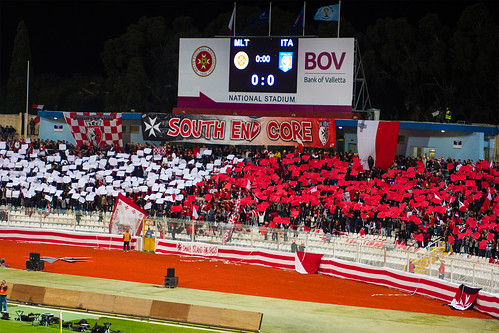While the global media relishes episode
after episode of the FIFA saga, another - quieter - revolution could be taking
place that could spell the end of sport governance as we know it. The names
involved are arguably less glamorous (or notorious) than the Blatters,
Platinis, or even Beckenbauers of this world
When Dutch speed skaters Mark Tuitert and Niels Kerstholt took part in an independent off-season event last year, they knew they were challenging the status quo in most organisations within the pyramid of sport governance. In several disciplines, professional athletes are barred from participating in competitions other than those organised or recognised by the association or federation they belong to.
Let's take football for ease of reference. Players
cannot participate in competitions other than their domestic league or UEFA and
FIFA competitions at club and national team level. When the top European clubs
flouted the idea of setting up a league of their own outside UEFA - because
they have enough demand and economic firepower to do so - they were
1) threatened with eternal suspensions, and 2) accommodated enough to stay put
as UEFA bent over backwards to appease them.
Tuitert and Kerstholt were similarly
threatened of being suspended from the International Skating Union (ISU) and
consequently being unable to compete in major competitions such as the Olympics
and the World Championships. Only that in their case the threat was carried
out.
For the record, Tuitert is the Olympic Champion in
the 1500 meters and Kerstholt was World Champion in short
track with the Dutch national team. Not that it matters much. Their
claim would have been the same if they always placed last: here is an
organisation, the ISU, that is abusing of its monopoly in regulating the sport,
they maintain.
The two skaters complained to the Euorpean
Commission. As they said in an open letter, "the numbers speak for
themselves: an individual short track speed skater winning all the ISU
competitions in a typical season would earn around €25,000. This is less than
what the same skater would receive for merely appearing in a single, two-day
Icederby event".
The European Commission is indeed investigating the
complaint “because it raises specific allegations of breaches of competition
law at the international level rather than wider issues of internal governance
or rule-making in a sport federation". Back in June, as soon as a
third of the FIFA Executive Committee was arrested in Zurich, the European
Parliament has expressed the same concerns.
When sport becomes an economic activity, it has to
balance out its traditional autonomy and specificity on one hand, and
compliance with market and employment rules on the other. Athletes can
only compete at the highest level for a limited number of years, so there must
be good reasons for preventing them to take part in events.
This case could well fizzle out if the
European Commission deems there were good reasons behind the ISU position. It
could be, however, that if the Dutch skaters' claims are considered justified,
international sport governance would need to be redefined. International
federations such as FIFA would be restricted to governing the rules of
the game, leaving the organisation of competitions (and the mountains of
revenues) to others.
If that happens, you heard it here first.



